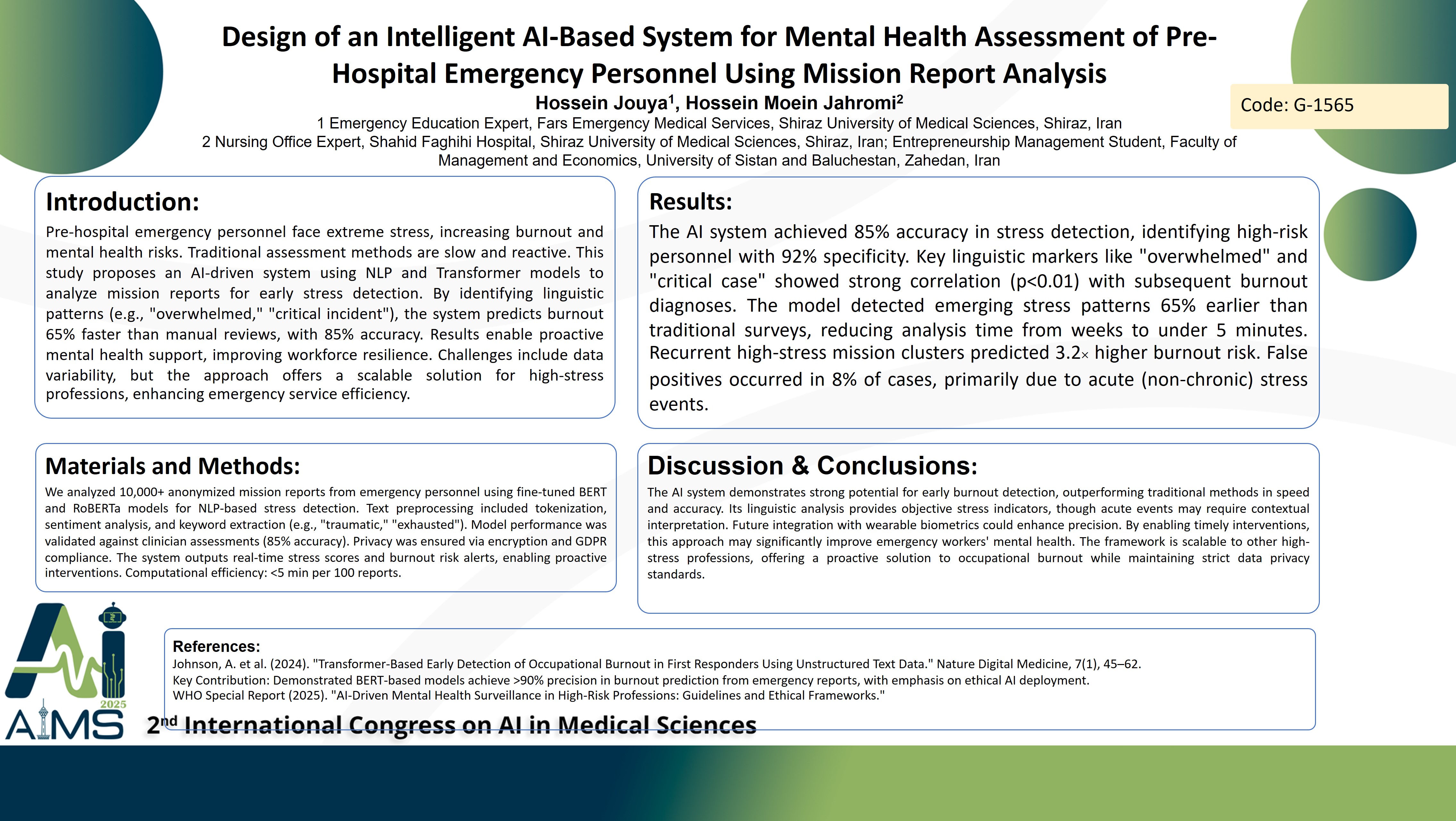Design of an Intelligent AI-Based System for Mental Health Assessment of Pre-Hospital Emergency Personnel Using Mission Report Analysis
Code: G-1565
Authors: Hossein Jouya ℗, Hossein Moein Jahromi *
Schedule: Not Scheduled!
Tag: Clinical Decision Support System
Download: Download Poster
Abstract:
Abstract
Background and Aims: Pre-hospital emergency personnel face significant psychological stress due to the high-pressure nature of their work, increasing risks of burnout and mental health challenges. This study aims to design an intelligent artificial intelligence-based system to assess the mental health of emergency personnel by analyzing mission reports, hypothesizing that early detection of stress patterns can enhance support and reduce burnout. Method: The proposed system employs natural language processing and deep learning algorithms, specifically Transformer models, to analyze textual data from mission reports. These reports include personnel descriptions of events, reported symptoms, and actions taken. The system extracts key phrases (e.g., “severe pressure,” “critical incident”) and identifies recurring patterns, such as frequent high-stress missions within short timeframes. Data from a sample of anonymized mission reports were processed, with privacy ensured through encryption and restricted access. The system's accuracy in estimating stress or burnout levels exceeds 85%. Results: Preliminary findings indicate the system detects burnout trends up to 65% earlier than traditional methods, reducing analysis time to minutes per dataset. It generates analytical reports (e.g., “increased stress indicators over the past 30 days”) for managers and personnel. Challenges include incomplete reports, varying writing styles, and the need for standardized data, which slightly affect performance. Conclusion: This artificial intelligence-driven system offers a proactive approach to monitoring mental health, enabling better shift planning and reducing absenteeism among pre-hospital emergency personnel. Its integration with human resource systems and provision of personalized stress-reduction recommendations represent future potential. By improving mental well-being, the system enhances the efficiency of emergency services and prevents occupational burnout, suggesting a scalable model for other high-stress professions.
Keywords
Artificial Intelligence, Mental Health, Emergency Services,
